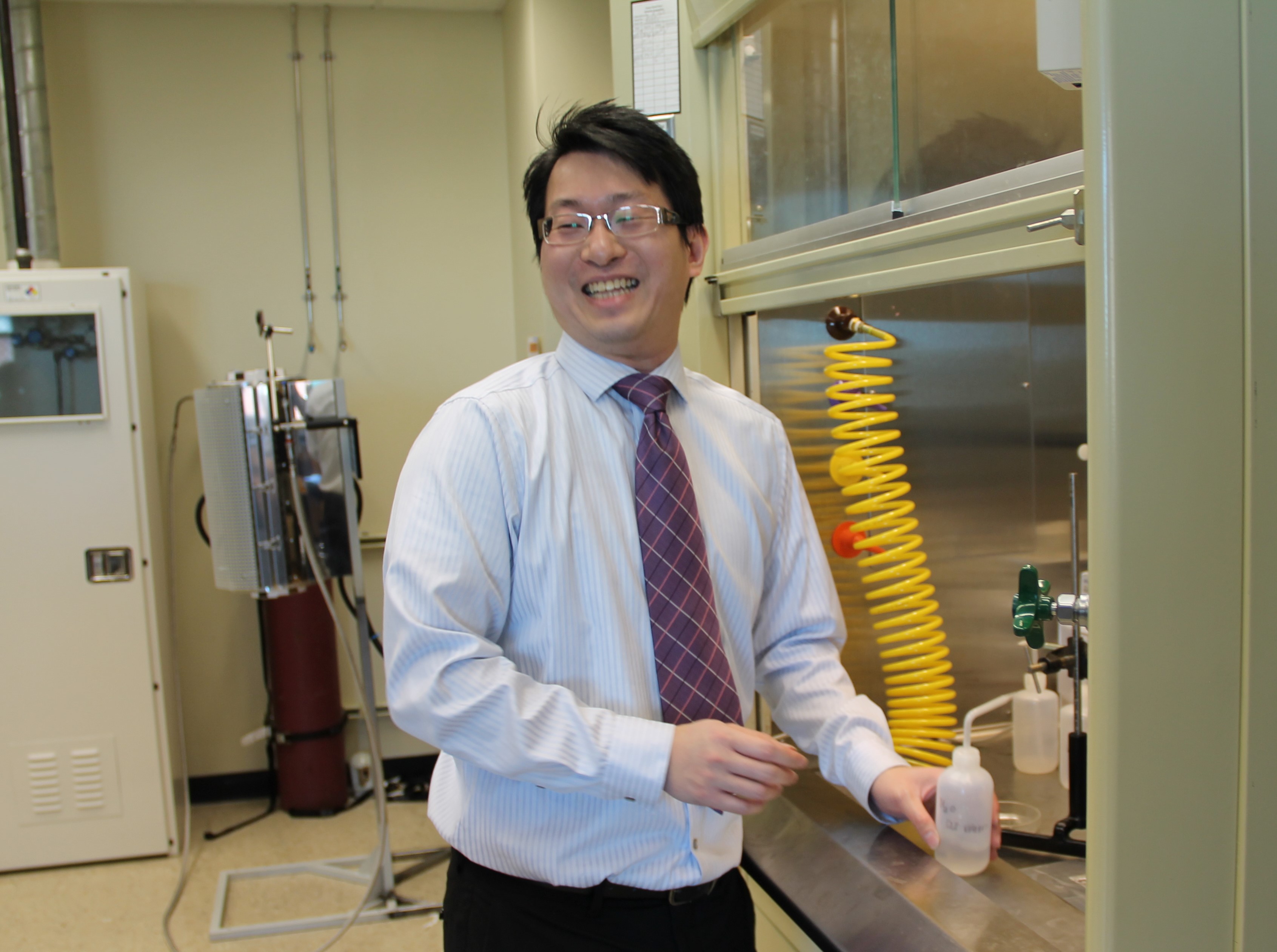Baylor Physics Professor Recognized as a SPIE Rising Researcher

Howard Lee, Ph.D., assistant professor of physics, has been recognized by SPIE with its Rising Researcher Award.
Media Contact: Lori Fogleman, 254-710-6275
Follow Lori on Twitter at @LoriBaylorU
Follow us on Twitter: @BaylorUMedia
by Cacey Vigil, student news writer, Baylor Media and Public Relations
WACO, Texas (Feb. 12, 2020) – Howard Lee, Ph.D., assistant professor of physics at Baylor University, has been recognized by SPIE, the International Society for Optics and Photonics, with its SPIE Rising Researcher Award.
The Rising Researchers program recognizes early career professionals who conduct outstanding work in product development or research in the defense, commercial and scientific sensing, imaging, optics or related fields.
Lee is one of 13 distinguished young professionals recognized by SPIE as a Rising Researcher. He has been recognized for his advancements in developing active nano-scale photonics, zero-index optics and advanced meta-optical fibers.
“Part of our research is to study the fundamental and extreme optical properties of ultra-thin optical materials and to develop advanced nanoscale optical components for emerging applications,” Lee said.
Lee has made several contributions to the field of nano-optics and fiber optics. His contributions include:
• The development of the first optical fiber metalens enabled by ultra-thin geometric phase metasurfaces fabricated on the end-facet of a photonic crystal fiber fiber for focusing light direction from the fiber.
• The development of an “ENZ/plasmonic photonic crystal fiber,” which represents the first successful integration of two research fields — zero-index optics/plasmonics and fiber optics.
• The development of gate-tunable conducting oxide metasurface that enables dynamic electrical control of the phase and amplitude for active beam steering and color filtering.
• Demonstrating that oxide epsilon-near-zero materials can be used to make ultra-thin perfect light absorbers/nonlinear elements with broadband and electronically-tunable responses.
Lee’s innovative research in nanophotonics aligns with Baylor’s Illuminate strategic plan and one of its signature initiatives in Materials Science, which is an interdisciplinary initiative connecting the areas of physics, material sciences and engineering. As Baylor pursues recognition as a Tier 1/Research 1 institution and the preeminent Christian research university, investments in Materials Science research are positioning Baylor as a leader in technologies that make products faster, stronger and lighter, providing solutions for enhanced quality of life.
“My long-term research goal is to develop multidiscipline research projects that focus on nano-optics, nano- physics, material sciences, bio-photonics and nano-optical device applications,” Lee said. “I am also trying to establish an active research group that produces cutting-edge research and high-impact publications that will impact the optical community as a whole.”
Lee will present his work at the SPIE Defense and Commercial Sensing Conference on April 26 in Anaheim, California.
In 2018, Lee’s research in ultra-thin, nano-scale optical films earned the him the highly sought-after CAREER Award from the National Science Foundation (NSF).
In 2019, Lee was the recipient of the DARPA Director’s Fellowship, an award given to a limited number of the DARPA Young Faculty Award (YFA) recipients who have demonstrated exceptional project performance over a 24-month period.
ABOUT BAYLOR UNIVERSITY
Baylor University is a private Christian University and a nationally ranked research institution. The University provides a vibrant campus community for more than 18,000 students by blending interdisciplinary research with an international reputation for educational excellence and a faculty commitment to teaching and scholarship. Chartered in 1845 by the Republic of Texas through the efforts of Baptist pioneers, Baylor is the oldest continually operating University in Texas. Located in Waco, Baylor welcomes students from all 50 states and more than 90 countries to study a broad range of degrees among its 12 nationally recognized academic divisions.
ABOUT THE COLLEGE OF ARTS & SCIENCES AT BAYLOR UNIVERSITY
The College of Arts & Sciences is Baylor University’s oldest and largest academic division, consisting of 25 academic departments and seven academic centers and institutes. The more than 5,000 courses taught in the College span topics from art and theatre to religion, philosophy, sociology and the natural sciences. Faculty conduct research around the world, and research on the undergraduate and graduate level is prevalent throughout all disciplines. Visit www.baylor.edu/artsandsciences.